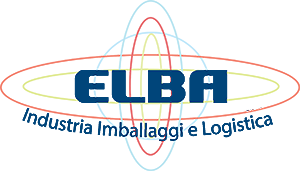Le nostre Certificazioni

Our
Certifications
Today Elba is a company certified Iso 9002 and continues in its business and research of refinement.
ISO 9000
ISO 9000 identifies a set of regulations and guidelines developed by the International Organization for Standards, which define the requirements for the implementation, in an organization, of a quality management system, to conduct business processes, improve effectiveness and efficiency in product delivery and service delivery, achieve and increase customer satisfaction.
- The ISO 9000 series rules are as follows:
- ISO 9000, entitled Quality Management Systems – Fundamentals and Vocabulary: issued in 2000; the last review of 2005 (ISO 9000:2005) implemented in the same year by UNI (UNI EN ISO 9000:2005); The standard describes the vocabulary and essential principles of quality management systems and their organization;
- ISO 9001, entitled Quality Management Systems – Requirements: issued in 1994, substantially revised in 2000; last revision in 2008 (ISO 9001:2008), implemented in the same year by UNI (UNI EN ISO 9001:2008); The standard defines the requirements of a quality management system for an organization. The requirements expressed are “general” and can be implemented by any type of organization.
- ISO 9004, entitled Managing an organization for lasting success – The management approach for quality: issued in 1994, substantially revised in 2000; last revision of 2009 (ISO 9004:2009) implemented in the same year by UNI (UNI EN ISO 9004:2009); The document is not a standard but a guideline to promote lasting success in an organization through quality management.
Certification ISO 9000
Currently, ISO 9000s are used in industry as a reference model for qualification and selection of suppliers and in contracts between suppliers and customers.
Previously there were also ISO 9002 and 9003 standards, replaced by ISO 9001; their certification is no longer recognized at the national and international level, as they were permanently withdrawn in 2003.
ISO 9001:2000/2008 provides a comprehensive and comprehensive certification approach, so you cannot exclude certain industries or business processes if they are in your organization, that are required to satisfy your customers.
The only standard in the ISO 9000 family for which a company can be certified is ISO 9001; the others are only useful but optional guides to facilitate the correct application and interpretation of the principles of the quality system. ISO 9000 identifies the “lexicon” for 9001 and 9004. Its last revision (issue from ISO and adoption by UNI) dates back to 2005; in this last edition, the lexicon has been expanded and revised to allow the application of ISO 9001 to other areas (administrations, universities, service companies…). ISO 9004 allows you to identify ideas for improving the needs expressed in ISO 9001.
The 2000 rule is also improperly named Vision 2000. This term is not the name of a standard, but it is a generic name that would like to identify several activities (training, documentation, etc.) that relate to the new family of quality standards born in 2000. Vision 2000 is therefore not a standard of quality.
The full name of the standard received in Italy is UNI EN ISO 9001:2008 as the ISO standard is harmonized, published and disseminated by the Italian National Unification Authority and the European Standards Committee in Europe.
The ISO 9000 series rules are universal and their applicability is regardless of the size or industry of the business, which can be a company or any other type of organization. They define generic principles that the company must follow but not the way it should produce certain products: for this reason, they do not apply to products but only to the company that produces them. According to this view, ISO 9001 guarantees control of the production process and its effectiveness, but not its efficiency.
Currently, ISO 9000s are used in industry as a reference model for qualification and selection of suppliers and in contracts between suppliers and customers.
In particular, in the case of suppliers, it is very useful to refer to ISO 10005 which identifies guidelines for the definition of the quality plan, a useful tool that each supplier should adopt to demonstrate how it intends to guarantee contractual clauses against the customer. The quality plan can be considered a subset of the quality system of a company that, despite not having ISO 9001 certification, intends to explain to the customer the rules of behavior of its system.
From the customer’s perspective, in essence, demanding the quality plan about the contract is the logical first step necessary to understand how the supplier handles the contract.
In Italy and Europe, it is spreading considerably, with considerable annual increases. For some sectors, and concerning public competitions (contracts and tenders), ISO 9001 is mandatory.
The Consortium of Wood-Sugher services was recognized by the Ministry of Agriculture and Forestry policies with the Decree 13 July 2005 (published in the Official Journal of the Italian Republic, number 175 of 29 July 2005), as a national operator of the IPPC/FAO brand, which guarantees the phytosanitary compliance of wooden packaging to the ISPM-15 Standard.
MARK FITOK
The recognition comes from a joint proposal submitted by CNA Wood Production, Confcraft Wood Furniture, Federlegno-Arredo, I.F.A., and Unital/Confapi, aimed at establishing a subject capable of controlling and coordinating all professional figures involved in the packaging supply chain and interested in exports.
The ministerial decree also recognized the FITOK mark and the regulation presented by the Wood-Cork Services Consortium called ‘Regulation for the Use of the FITOK Voluntary Health Mark’, which has been in operation for all companies since September 2005.
The Wood-Cork Services Consortium for the management of the IPPC/FAO and FITOK brand and for the application of the ‘FITOK Voluntary Health Brand Regulation’ uses a ‘Management Committee’, consisting of a specific body of the Consortium, the FITOK TECTONIC COMITATION.
